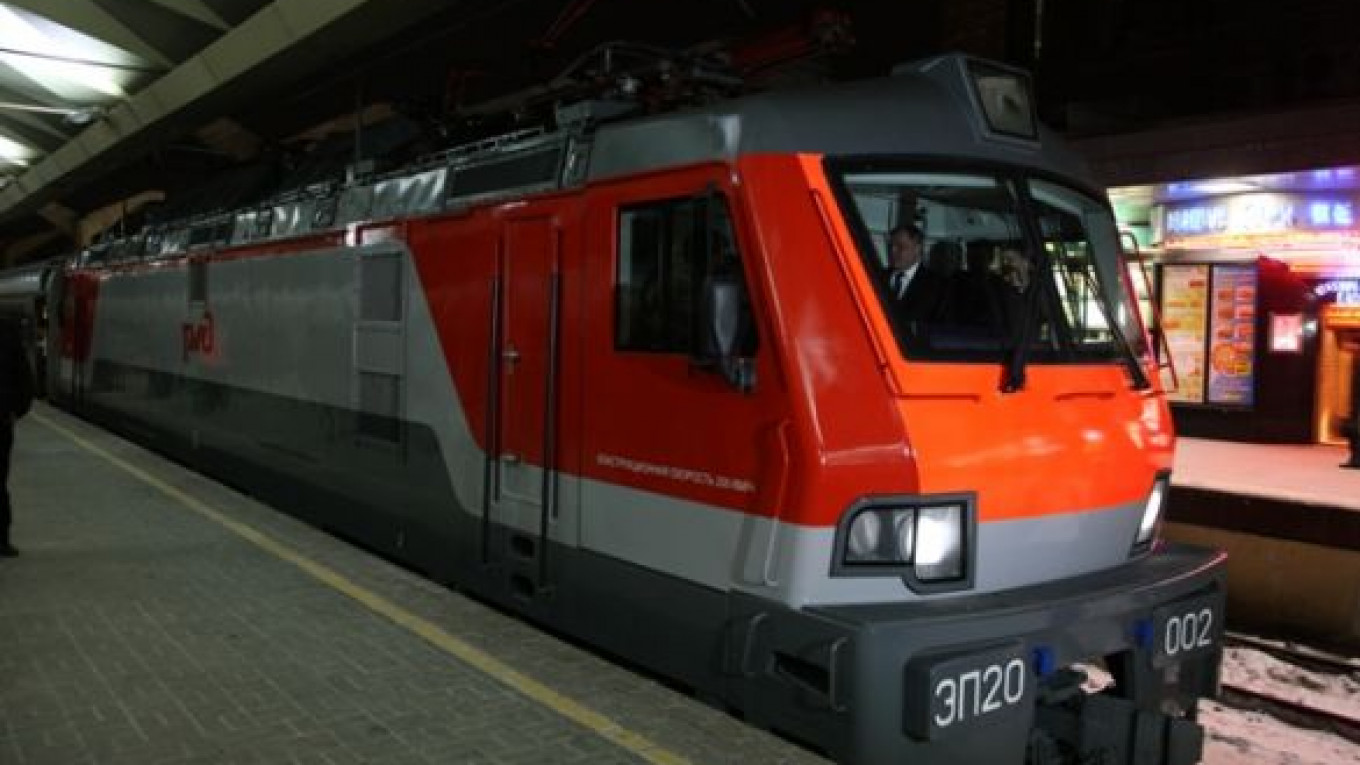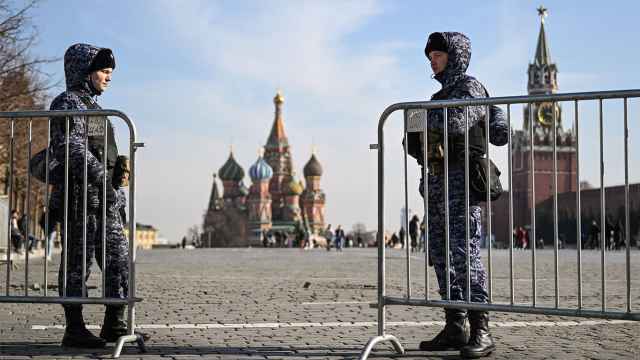Russian Railways has both AC and DC electrical supply systems. In May 2010, a joint venture of Siemens and Sinara received an order from the rail monopoly to supply 221 2ES10-type direct current locomotives.
Alstom and its Russian partner Transmashholding are to supply Russian Railways with 200 2ES5-type alternating current locomotives by the end of the year.
The newly signed agreement envisages research on a freight locomotive which could run on both AC and DC power.
"Our EP20 passenger locomotive [used to haul trains on lines going from Moscow to Voronezh, Sochi and Nizhny Novgorod ] is already dual-current. Now, we have to adapt it for freight," said Henri Poupart-Lafarge, the president of Alstom Transport. The locomotive will be fully developed and then manufactured in Russia, he added.
The timeframe for completing the research and the cost of the vehicle were not disclosed.
Three more key documents were officially signed at the rail forum on Thursday, one of them being an agreement between Russian Railways and Siemens for cooperation to supply electronic control systems for the Luzhskaya rail hub, which services the Ust-Luga port in the Leningrad region.
Three more agreements are to be signed on Friday. One of them is a memorandum on a contract between Sberbank Leasing and UVZ-Logistics, a subsidiary of Uralvagonzavod and one of the biggest freight carriers in Russia, which has been making efforts recently to renew its rolling stock.
The total value of already signed agreements is estimated at around 10 billion rubles ($314 million), Russian Railways chief Vladimir Yakunin said. Fourteen separate agreements worth a total of 120 billion rubles were signed at the 1520 Forum held in Sochi last year, which is named in honor of the width of Russia's rail track gauge.
Contact the author at a.panin@imedia.ru
A Message from The Moscow Times:
Dear readers,
We are facing unprecedented challenges. Russia's Prosecutor General's Office has designated The Moscow Times as an "undesirable" organization, criminalizing our work and putting our staff at risk of prosecution. This follows our earlier unjust labeling as a "foreign agent."
These actions are direct attempts to silence independent journalism in Russia. The authorities claim our work "discredits the decisions of the Russian leadership." We see things differently: we strive to provide accurate, unbiased reporting on Russia.
We, the journalists of The Moscow Times, refuse to be silenced. But to continue our work, we need your help.
Your support, no matter how small, makes a world of difference. If you can, please support us monthly starting from just $2. It's quick to set up, and every contribution makes a significant impact.
By supporting The Moscow Times, you're defending open, independent journalism in the face of repression. Thank you for standing with us.
Remind me later.






